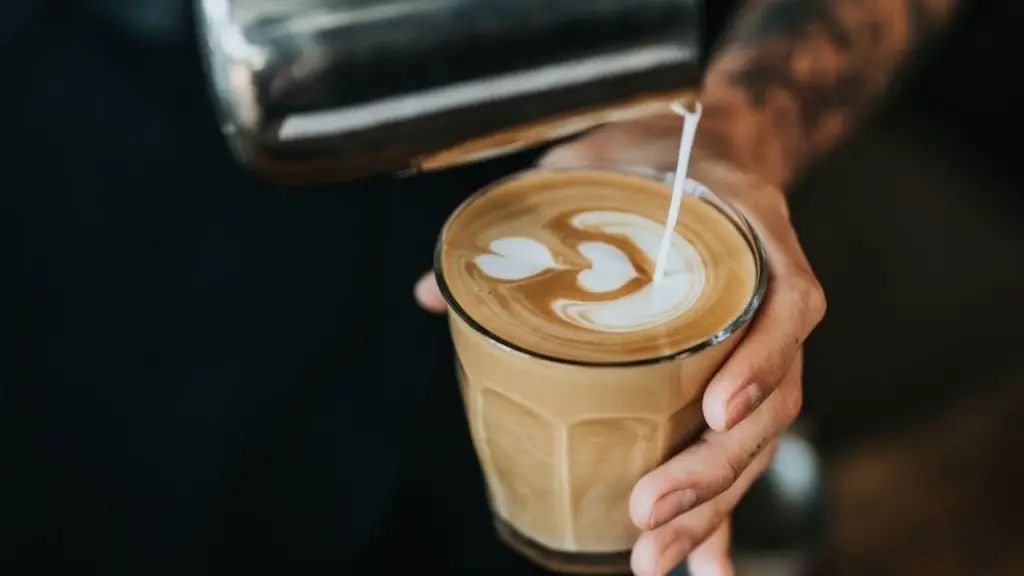During the Covid-19 pandemic, coffee has become more popular than ever before as people turn to it for a boost of energy, pick-me-up, and comfort. But with all of the research linking coffee to health benefits, is it okay to still drink coffee while having Covid?
Like any other beverage, coffee can be enjoyed in moderation as part of a healthy lifestyle. According to a recent study from Harvard Medical School, moderate coffee consumption has been linked to a variety of health benefits, including improved heart health and a lower risk of type 2 diabetes, stroke and some cancers. Coffee also contains caffeine, which can provide an energy boost and mental alertness.
However, there is still some debate about the safety of drinking coffee while having Covid—especially as there is no extensive research on the effects of coffee on people with the virus. In this case, it’s best to talk to a doctor before consuming coffee while having Covid, in order to make sure it will not negatively interfere with any medications or treatments. It is also important to be aware that drinking too much coffee could lead to potential risks, such as an increased heart rate or insomnia.
Additionally, the American College of Physicians recommends that pregnant women, those with high blood pressure, and people with anxiety should be cautious when consuming caffeine while having Covid. In these cases, doctors may suggest avoiding coffee altogether, or at least limiting it to a couple of cups a day.
That being said, it is possible to enjoy a cup of coffee during the pandemic sans any side effects, and there are still many benefits to drinking it—in moderation, of course. As Harvard Medical School notes, “Coffee can be part of a healthy lifestyle, as long as it’s not overindulged.”
Impact of Coffee on Mental Health
Drinking coffee may also lead to a variety of mental health benefits. Studies have shown that caffeine, which is a main ingredient of coffee, can help to improve mood, reduce fatigue and increase alertness.
Other studies have linked coffee to reduced depression and suicide risks, as well as a decreased risk of Alzheimer’s and other age-related dementias. Caffeine may also help to improve cognitive performance and reduce the risk of mental decline as we age.
At the same time, the effects of drinking coffee on mental health may depend on an individual’s level of anxiety and caffeine sensitivity. And, of course, it is important to keep in mind that drinking too much coffee could result in insomnia, restlessness, and irritability.
Given the potential benefits, however, moderate coffee consumption is generally considered safe, especially if consumed in conjunction with regular exercise, a healthy diet, and stress-reducing activities.
The Pros and Cons of Drinking Coffee During Covid
Drinking coffee while having Covid has both its pros and cons. On the one hand, it can provide an energy boost, improve mood, and reduce the risk of mental decline. On the other hand, it is important to remember that everyone is different and caffeine sensitivity may vary, meaning that it is best to talk to a doctor about any potential risks.
Additionally, people with high blood pressure, anxiety, and pregnant women should be especially careful when it comes to drinking coffee, as it could negatively interfere with any medications or treatments. But again—in moderation—drinking coffee can still be part of a healthy lifestyle, even during the Covid-19 pandemic.
Coffee Alternatives During Covid
If someone is looking for an energy boost during the Covid-19 pandemic, but would rather avoid drinking coffee, there are a variety of alternative options available. Herbal teas such as chamomile, green, or peppermint tea can provide an energy boost without the need for caffeine. Additionally, certain supplements like B-complex vitamins are also available.
Exercise is always a great option for an energy boost. It can help to improve muscle and joint strength, flexibility, and circulation, as well as reduce stress levels and provide mental clarity. Other strategies, such as meditation and mindfulness, can also be helpful in boosting energy and lowering stress levels.
Is Coffee Dairy-Free?
When it comes to coffee, it is important to remember that most types are not dairy-free. Most commercial coffee drinks, such as lattes and cappuccinos, contain milk or cream, as well as often other ingredients, such as syrups and flavors. It is best to look for dairy-free alternatives, such as plant-based milks and espresso-based drinks, if someone would like to avoid dairy while enjoying coffee.
Finding Balance with Coffee During Covid
It is important to find balance when it comes to drinking coffee while having Covid. Keeping in mind that moderation is key, it is still possible to enjoy coffee while during the pandemic—so long as potential risks are taken into consideration.
At the end of the day, everyone is different and it is important to talk to a doctor before consuming coffee while having Covid, especially if someone has any underlying health conditions. Ultimately, coffee can still be part of a healthy lifestyle—just make sure to enjoy it in moderation!




